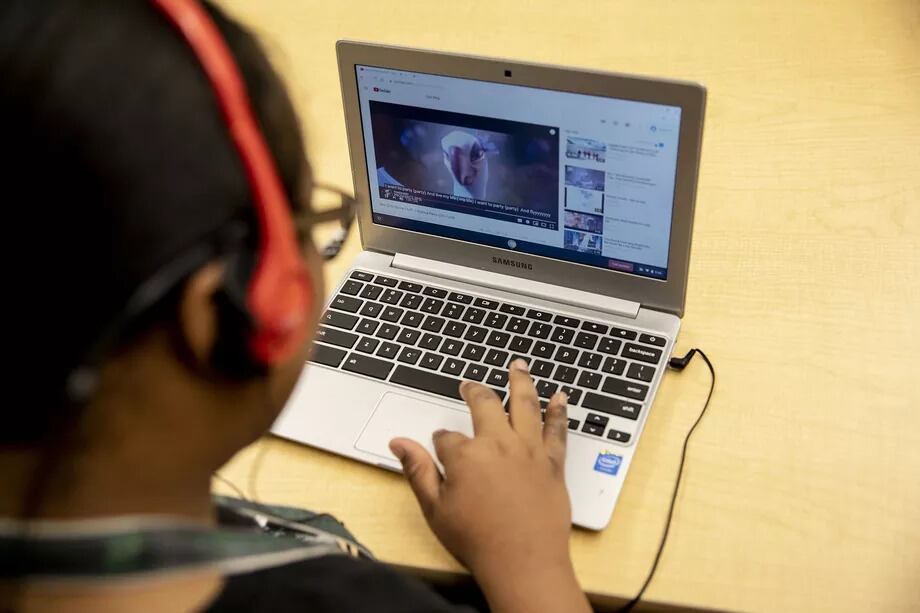Indiana will stop issuing emergency permits for special education teachers after this school year, ending a long-standing practice that helps schools staff hard-to-fill positions.
The change, made to comply with federal regulations, comes as school districts grapple with staffing shortages worsened by COVID-19 and affects around 1,200 educators who will need to take additional steps toward their full licensure in order to stay in the classroom.
State officials informed schools in June about the looming cutoff. The federal Every Student Succeeds Act in 2015 tightened rules for special education teachers, prohibiting them from having licensure requirements waived on an “emergency, temporary, or provisional basis.”
According to Indiana Department of Education spokesperson Holly Lawson, the department decided to stop issuing the emergency permits beginning in 2022-23 after receiving “feedback from Indiana educators that there may be a gap between our practice and the interpretation of federal regulation.”
“With this yearlong transition, we’re working to provide robust pathways and support to help all special education educators earn full licensure,” Lawson said.
Schools rely heavily on emergency permits for special education. In 2019-20, Indiana issued 1,018 emergency permits and 2,878 full licenses to educate students with learning disabilities or mild developmental disorders — or one emergency permit for every three full licenses.
Such “mild intervention” permits were the most popular emergency permit issued. Emergency permits for teaching students with more severe disabilities represented a higher proportion of licenses issued in 2019-20.
Indiana has issued emergency permits for education to ease teacher shortages since the 1960s, according to the Department of Education memo. They allow someone who holds at least a bachelor’s degree to fill a vacant teaching position for a year — as long as they commit to working toward their full license.
Emergency permits are typically renewable if the teacher holding them demonstrates that they’ve made progress toward their license, usually via additional coursework or testing.
The state is planning to launch programs to enable emergency permit holders to work toward full licensure, including an alternative route to licensure for special education and tuition assistance for teachers seeking a special education license.
The alternative licensing route would require an educator to hold a bachelor’s degree, be employed by a school, and be enrolled in an alternative education program. Valid for three years, it would give a teacher time to complete a full license.
The department is also planning to use emergency federal relief funds to offer scholarships for 300 teachers seeking a special education license, as well as expand the number of transition-to-teaching programs for special education teachers.
In Fort Wayne Community Schools, district officials are working with teachers and their principals to make them aware that they wouldn’t be able to stay in their positions past this year without becoming properly certified, said spokesperson Krista Stockman.
In 2019-20, Fort Wayne schools employed 39 teachers through emergency permits in mild intervention — the third-largest number in the state in that category, behind Indianapolis Public Schools and South Bend.
“Hiring enough special education teachers has been a long-standing issue, and we don’t see an end to that challenge,” Stockman said. “We are heavily recruiting year-round, and encourage teacher candidates to pursue their special education certification right away.”
Schools also face challenges keeping teachers in special education positions, said Joe Kwisz, president-elect of the Indiana Council of Administrators of Special Education. Some use the temporary credentials as a foot in the door to other positions instead.
The result is a never-ending onboarding process, Kwisz said.
The organization is behind an additional proposal to help licensed teachers obtain an endorsement for special education. The program, which is currently pending state approval, would be offered through local school districts, with a yearlong practicum and monthly full-day training sessions provided by the council.
It would allow teachers to stay in the classroom while they earn their endorsement and gain field experience, Kwisz said.
“Just about every corporation has a need for a special education teacher,” Kwisz said.





